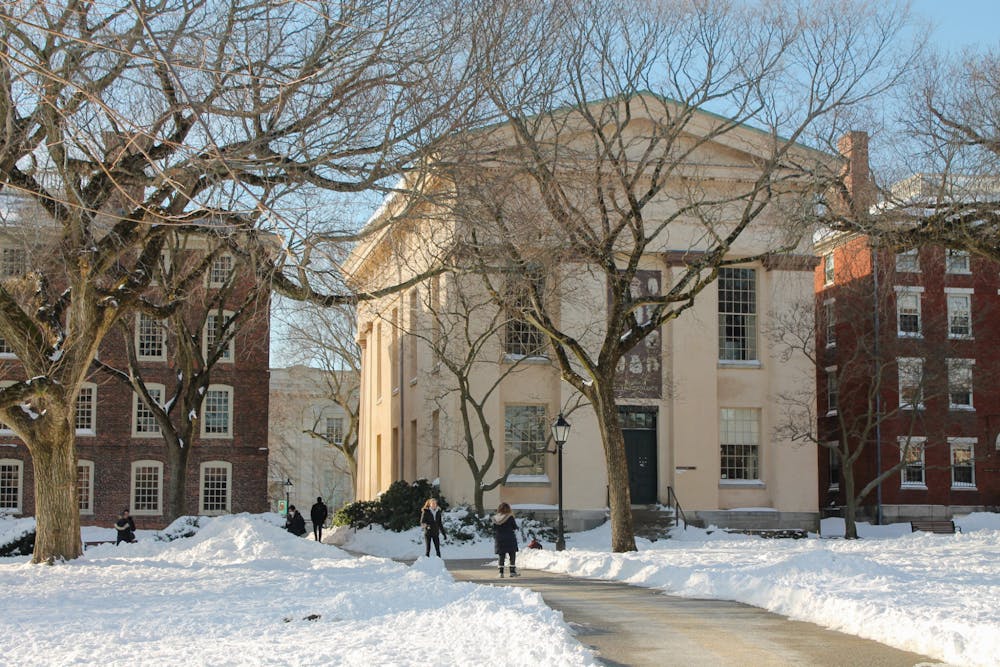The Corporation — the University’s highest governing body — appointed Pamela Reeves ’87 as vice chancellor at its February meeting, according to a University press release. At the meeting, members of the Corporation also addressed expanding research and experiential education offerings, approved campus construction projects and accepted gifts and pledges.
Reeves will begin her term July 1, joining Chancellor Samuel Mencoff ’78 and Treasurer Theresia Gouw ’90, who were both reappointed to three-year terms in their respective positions. Reeves will succeed Alison Ressler ’80, who opted to not serve another term.
“It has been a deep honor to serve on the Brown Corporation for the last six years, and I’m excited now to join a team of Corporation members and senior leaders at Brown in support of their commitment to excellence throughout the University,” Reeves said in the press release. “I cannot think of a more collaborative, values-driven and committed group of people, and I am gratified to be part of the Corporation’s work to support students, faculty and staff across this extraordinary community and to advance Brown’s mission to make a positive impact in the world.”
The Corporation also discussed increasing research and experiential educational opportunities, which would bolster programs aimed at connecting students with internships, volunteer work and study-abroad opportunities, according to the press release.
Meetings of the Corporation as a whole and the Corporation’s Committee of Academic Affairs centered on plans to grow the University’s research through funding from the federal government, corporations and foundations, according to a Today@Brown letter from President Christina Paxson P’19. Provost Richard Locke P’18 and academic deans will host conversations with faculty to identify growth that complements existing strengths.
“We are not just a terrific college, but we’re also a major research university,” Locke told The Herald. “For us to fulfill our mission, to have a greater impact and visibility in society, we believe that we should try to see if we can grow our research — double it — in, say, the next seven years or so.”
Research expenditures have increased by about 41% over the last half decade, according to Locke.
Raising UTRA funding, increasing the number of seed grants and constructing new research facilities are among the measures that the University plans to take to expand research output, Locke said. Other initiatives aim to bring in more faculty, postdocs and graduate students in the coming years.
“As you get more and more people engaged in research — including our undergraduates — you innovate the education we offer,” Locke said. “Having a more vibrant research atmosphere gets you to attract the best and brightest students and faculty and staff. It becomes a virtuous cycle.”
The University also plans to make studying abroad easier for students, especially STEM concentrators, whose course requirements often prevent them from studying elsewhere. “What if we could use some of the technology we have available so that they could still take a course at Brown … online while they’re in Europe studying something else?” Locke said.
Approval from the New England Commission of Higher Education — the organization that provides accreditation to the University — will allow Brown to offer new educational opportunities such as professional education for students around the world, according to the letter.
Three pilot programs launched by the University may set the groundwork for these opportunities. The first, located in Boston, offers students the opportunity to work with biotechnological startups in six-month “immersion” programs that start in the summer and run through the fall. Another allows students to study at Humboldt University in Berlin and the last provides students with the ability to work on political campaigns while taking classes at Brown.
“Our students, individually, already do this,” Locke said. “But if we can create more structured opportunities, it might lower the barrier for people, and more students can take advantage of it.”
“We’re coming out of two really difficult years of the pandemic,” Locke added. “It was really, really nice to see how much energy and enthusiasm there was about thinking forward” at the Corporation meetings.
Construction of the new dorm on Brook Street and renovation of a new LGBTQ Center at 22 Benevolent St. were also approved at the meeting.
The Corporation accepted $140 million in gifts and pledges given to the University since the last meeting in October. Some of this funding will go to endow seven professorships, an athletic director, two assistant coaching chairs and an athletic director of operations.
The Corporation also approved the name of the Saxena Center for Contemporary South Asia and appointed two faculty members to named chair positions.
Charlie Clynes was the managing editor of digital content on The Herald's 134th Editorial Board. Previously, he covered University Hall and the Graduate Labor Organization as a University News editor.





